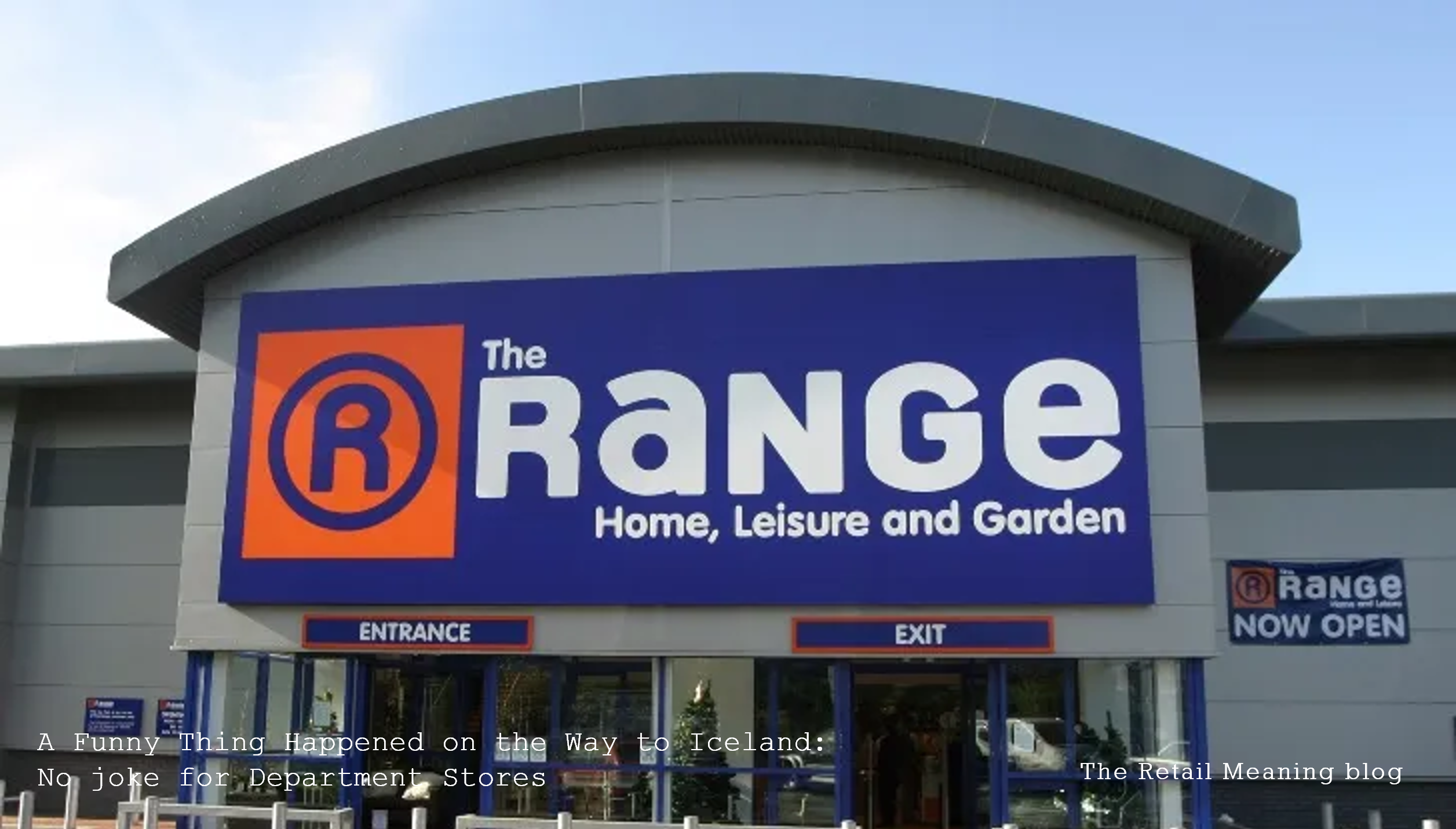So, a funny thing happened on the way to the shops. To be precise a couple of funny things with more to follow without doubt.
Let’s move forward a few months and I’m making my way into The Range, my local store for value home furnishings and décor. Inside I also find my new local Iceland supermarket selling value groceries. I’m a happy bunny because the 2 stores both appeal to me in terms of assortment, quality and price and so for the cost of one parking place, whilst saving half an hour into the bargain, I can stock up on my Iceland food and fit out my kitchen at the same time.
On my same visit I go next door into my Sports Direct to take advantage of the summer T-shirt offer and once I’ve made my purchase I have a look at the latest releases in the GAME concession, have a café latte and watch some guys from Sweden take each other on at some action game or other; joined in front of the big screens, in the comfy sofas, by the cheering crowds of newly attired Sports Direct aficionados.
Two Tenants are better than one:
The news today regarding Iceland & The Range comes fairly fresh on the heels of similar space sharing initiatives between Sports Direct and Game.
Both make absolute sense. Square meterage is less important than focused ranges, easy choices and worthwhile experiences for customers and retailers today. Stores can offer more in less space so if 2 or more compatible retailers can better use the same space whilst attracting the same customer group more often and more regularly then everyone’s a winner.
Department stores won’t be laughing:
Considering the original idea behind department stores was to bring different brands together under one roof for a similar customer group we could view these new initiatives as reinventing the wheel. In fact, that’s what they are doing; but in a modern market place and with some distinct differences.
The main difference is that department stores traditionally sold brands that were not easy to buy together except in other department stores. And in the instance of Selfridges in particular they did, and still do with great expertise, create unique theatre and experience for the customer.
However, average department stores have fallen into the trap of selling brands and products widely available on the internet and of course specifically Amazon. As Toys R Us has shown there is no future selling “other peoples’ stuff!” And average department stores lack a lifestyle experience that make them the number one destination, or indeed any destination which can out-weigh the convenience and price of other channels.
Only the enlightened department stores such as John Lewis, developing over 60 percent of its range as unique or exclusive and creating experiences from personal shopping to demonstrations and clubs to seasonal extravaganzas can hope to prosper against this backdrop.
Share space & double the experience
And so back to our newer mass market initiatives to share space and double the experience. In all cases the willing participants have a clear and focused proposition in their own right and a similar if not identical target customer. They sell their own stuff, or other peoples but with a distinct position on price, target market and experience. And in the case of Game, the new strategic shift to e-sports and arenas that offer experience and drama, brings that missing theatre to the previously cavernous shells of Sports Direct.
These collaborations will continue and multiply creating mixed brand spaces, and cross category experiences. Initially a reaction to reduce costs and bolster profit in a tough market their common sense is sound. In this disruptive retail world they will undoubtedly take over the square meterage and patronage of customers still looking for the department store curated convenience but with a unique and compelling lifestyle experience to boot.
Coming to a store, or two, or three, near you soon.
